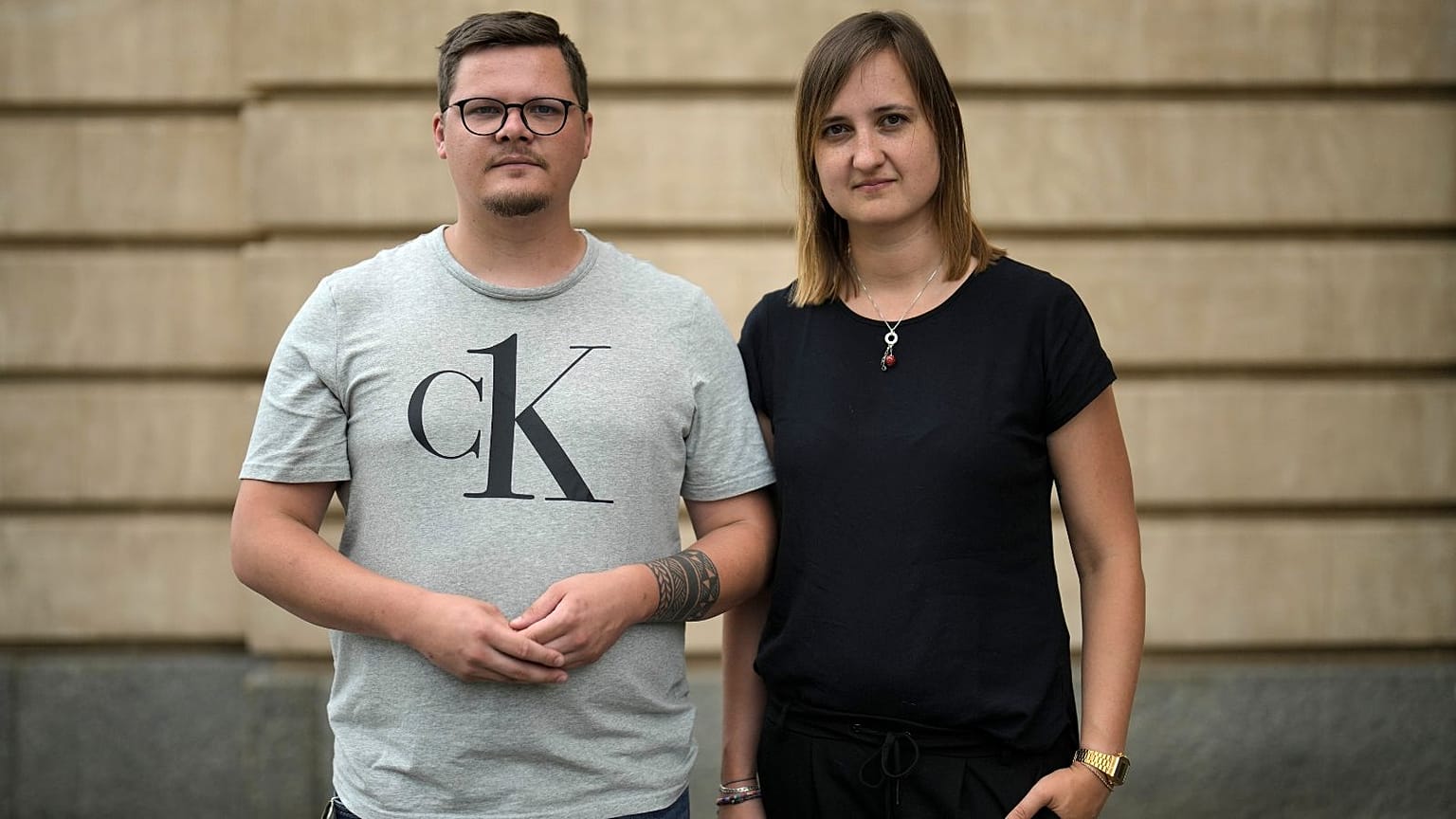The two teachers say students greeted each other with Nazi salutes, threatened to beat up immigrant classmates and were homophobic and sexist.
Two teachers in eastern Germany tried to counter the far-right activities of students at their high school. They counselled bullies who threatened to beat up immigrant classmates. They gave more lessons about their country's Nazi past. They invited in a Black rapper to talk about mutual respect.
 ADVERTISEMENT
ADVERTISEMENT
 ADVERTISEMENT
ADVERTISEMENT
None of it helped. In desperation, Laura Nickel and Max Teske wrote a public letter describing an atmosphere of intimidation at Mina Witkojc School in Burg. They reported students greeting each other with the Nazi salute, scratching swastikas on their desks and playing music with racist lyrics in the hallways.
“Teachers and students who openly fight against far-right students and teachers fear for their safety,” the two said in the letter they sent to local newspapers, adding schools "cannot provide a home for the enemies of democracy."
Nickel, who taught English and history, and Teske, a maths and geography teacher, were unprepared for the backlash. A letter from an anonymous group of parents demanded their dismissals. Stickers with their pictures and the caption “Piss off to Berlin” plastered lampposts near campus. On social media, someone declared a desire to “hunt them down.”
Further disheartened by what they say was a lack of support from colleagues, the principal and local administrators, Nickel and Teske announced they were leaving the school and the town located 116 kilometres south-east of Berlin.
“Far-right extremist statements, actions, slogans, homophobia and sexism were and are the order of the day at this school,” Nickel, 34, who worked at Mina Witkojc for four years, said in a joint interview with Teske, 31, who taught there for three years.
Neither the school nor the local school authority responded to requests for comment on the teachers’ resignations.
But Teske and Nickel's experience has aroused fears in the German capital the far right has gained a greater foothold in some of the former East Germany than many thought.
Experts say that especially in the south of Brandenburg state, where Burg is located, a network of tattoo parlours, nightclubs, youth groups and fan clubs of the FC Energie Cottbus football team spread the messaging of the far-right Alternative for Germany, or AfD, party.
Earlier this month, Brandenburg state’s domestic intelligence service put Young Alternative for Germany, the AfD’s wing for supporters aged 14 and above, under official surveillance as a “proven right-wing extremist” group.
The state education ministry, criticised for not supporting the teachers enough, announced last week authorities had identified a teenager suspected of originally posting the "hunt them down” post on Instagram.
Amadeu Antonio Foundation Executive Director Timo Reinfrank, whose organisation promotes human rights while working against right-wing extremism, racism and antisemitism in Germany, said southern Brandenburg state has become “a zone of fear which the Nazis have declared as their home zone.”
Reinfrank said that's not really a surprise for those familiar with the area, where the far right was active even before AfD's founding a decade ago. The foundation he leads was named for an Angolan contract worker who in 1990 was killed when 50 youths with baseball bats went looking for Black people to attack in the Brandenburg town of Eberswalde.
AfD was founded in 2013 and first entered Germany's parliament four years later after campaigning on an anti-migrant platform. Recent polls show the party with a record level of support nationally, about 20%.
The reasons for its particular appeal in eastern Germany are manifold. Many lost their jobs after Germany's reunification and residents still speak of feeling like second-class citizens compared to the country's west. AfD has used the pandemic and influx of Ukrainian refugees as opportunities to promote an “us v them” narrative, experts say.
Many think AfD could emerge as the strongest party when Brandenburg and the fellow eastern states of Saxony and Thuringia hold elections next year. In Thuringia, the AfD candidate last month won the county administrator's post in Sonneberg, the first time since the Nazi era that a far-right party placed first at the county level.
After the teachers announced their withdrawal, the head of the AfD chapter in Cottbus, Brandenburg state’s second-largest city, cheered on Twitter that Teske, whom he called a “leftist radical informer,” and his “accomplice” were gone.
The police are investigating threats. When Teske goes out, he often looks to see if somebody might be following him. Recently, a man approached him in a shop and whispered, “Get out of here,” into his ear.
By calling out the dire conditions at the school, he and Nickel sparked a much-needed national debate about the rise of the far-right in Germany, Teske said.
“We will continue to be loud, we will continue to make a political impact, and won’t let the far right win,” he said.
“History repeats itself, and I believe that we must definitely do something now to put a stop to anti-democratic parties in Germany,” Nickel added.















